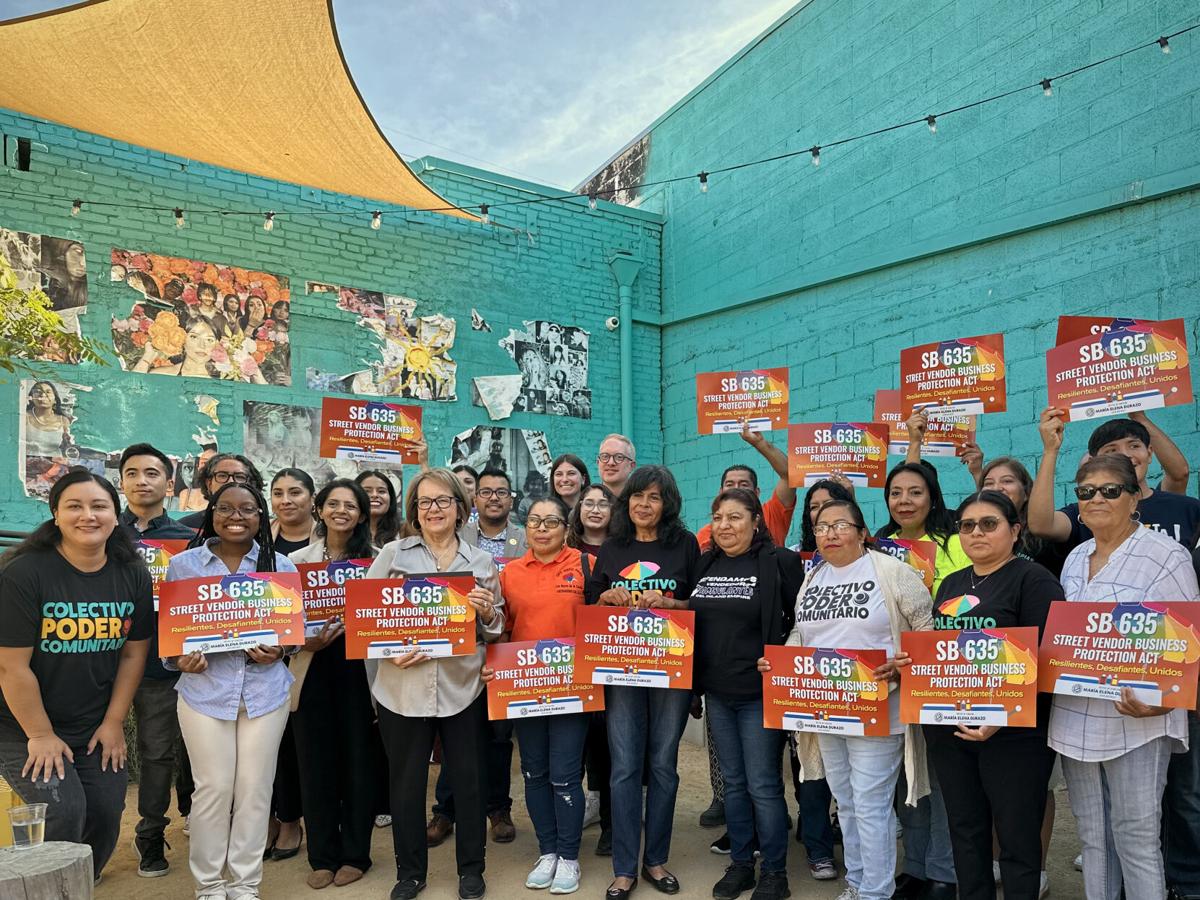California lawmakers have sent Governor Gavin Newsom a bill that could mark a turning point for thousands of immigrant street vendors across the state. Senate Bill 635, authored by Senator María Elena Durazo, would sharply limit how much personal information local governments can collect from vendors and restrict the ways that data can be shared with federal immigration enforcement. Advocates say it is a long-overdue measure that would give vendors the ability to work without fear of exposing themselves or their families to deportation risks.
Street vending was decriminalized statewide in 2019, but vendors have continued to operate under a cloud of uncertainty. Many cities and counties created permit systems that require applicants to hand over sensitive details, including fingerprints, criminal history, and, in some cases, information about citizenship or immigration status. Vendors and advocates argue that these requirements have discouraged many people from applying for permits, effectively keeping them underground and at risk of fines or harassment. SB 635 responds by prohibiting local governments from asking for that data in the first place and by requiring the destruction of any sensitive records already collected by March of next year.
The bill also seeks to draw a hard line between local code enforcement and federal immigration agencies. Under SB 635, agencies would be barred from voluntarily sharing information about street vendors with immigration authorities unless compelled by a warrant or subpoena. The measure would also prevent law enforcement or local regulators from using their resources to assist in federal immigration operations. Supporters argue that these protections are critical at a time when immigrant communities across Los Angeles and beyond have reported heightened fear in response to stepped-up federal enforcement actions.
Los Angeles County is home to an estimated 50,000 street vendors, about 10,000 of whom sell food. For many, vending is the only viable source of income, but it comes with significant risks. Vendors describe staying home rather than working when immigration patrols are rumored to be nearby, leading to lost income, missed rent, and growing instability.
The push for SB 635 has been driven by a coalition of advocacy groups including CHIRLA, Public Counsel, Community Power Collective, Inclusive Action for the City, and the Inland Coalition for Immigrant Justice. They argue that stronger privacy protections will encourage more vendors to apply for permits and comply with health and safety standards, improving conditions not only for vendors but for customers and the wider public. Supporters frame it as both an immigrant rights issue and an economic justice measure that recognizes vendors as legitimate small business owners.
If signed into law, SB 635 would take effect January 1, 2026. Its passage would build on the state’s earlier decriminalization of vending by tackling one of the main reasons many immigrant vendors remain hesitant to enter the permitting system. But implementation will be key. Local governments will need to update their procedures, and advocates are already planning outreach to ensure vendors know their rights under the new law. For now, all eyes are on Governor Newsom, whose signature would offer a measure of security to tens of thousands of workers who have long labored in the open but in the shadows of official recognition.

